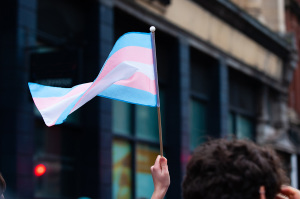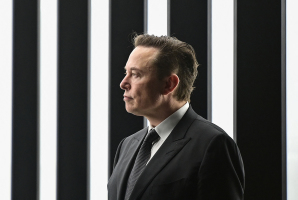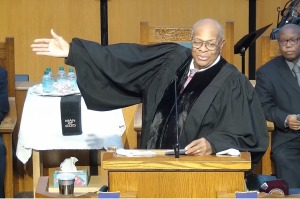Justice Scalia's Advice on His Replacement on the Supreme Court
The intensity of debate engendered by the Supreme Court vacancy left by Justice Scalia's unexpected death underscores the extent to which the Court and its unelected justices have usurped Americans' right to govern themselves.

Increasingly, the Supreme Court has gathered unto itself an excess of power in relation to the legislative and executive branches of the federal government. Judicial review has degenerated into judicial regency verging on imperial fiat.
Contrary to what the Founding Fathers intended, the Court has become the sun in its own solar system, with the Congress and Presidency reduced to the secondary roles of orbiting planets.
And this Court is so delicately balanced that Justice Scalia's replacement will tilt the Court in ways that will significantly alter the social and legal course of the entire country for decades to come.
Consequently, as Investor's Business Daily so aptly summarized it, "Antonin Scalia was on of the greatest jurists in history because he used his formidable intellect to insist that law is law, not licenses for activism. Replacing him will be total war." (IBD, 2/17/16).
Given these facts, it is important to note the wise advice Justice Scalia left the nation concerning what turns out to be his own replacement. In last summer's Obergefell-Hodges decision mandating same-sex marriage in all 50 states, Justice Scalia left the nation a virtual legal memo with some unexpected advice on qualities we should look for in a future successor on the nation's highest court, namely religious, educational, and geographic diversity. In his strongly worded dissent in the Obergefell-Hodges decision, Justice Scalia said the following: " To allow the policy question of same-sex marriage to be considered and resolved by a select, patrician, highly unrepresentative panel of nine is to violate a principle even more fundamental than no taxation without representation: no social transformation without representation.
What did Justice Scalia mean? Well, the current Court, prior to Justice Scalia's death, consisted of nine justices; four of the justices were from New York City, and if you count Justice Alito from suburban New York (New Jersey) five of the justices come from greater New York. Of the other four, two were from California – Kennedy and Breyer –and one was from Georgia – Thomas – with just one, Chief Justice Roberts, from the vast Midwest of the United States (and he graduated from Harvard and Harvard Law School).
Educationally there is a similar conformity – four went to Harvard, three to Yale, one to Cornell and one to Stanford, and three received their undergraduate degrees from Princeton.
And this lack of diversity doesn't stop there. Justice Scalia also explained in his dissent that the Supreme Court had "not a single Evangelical Christian, a group that comprises about one quarter of Americans, or even a Protestant of any denomination." Before Scalia's death, six Catholics and three Jews made up the court. Such an elitist group of judges, Scalia argued, was very likely to be dangerously out of step with the broader culture of the country they seek to serve.
Justice Scalia did not believe that the Supreme Court should legislate from the bench. His point, however, was that if they were going to insist on legislating from the bench, they needed to be far more representative of the country religiously, educationally, and geographically.
We should heed the late Justice Scalia's sound and excellent advice. The next justice should be a Protestant from the vast middle of the country, anywhere from Texas in the South to North Dakota in the North and from the vast expanse bordered by the Appalachians in the East and the Rockies in the West. And, although a Princeton graduate myself, I join Justice Scalia in urging strongly that the next justice not be a graduate of an Ivy League law school or an Ivy League college.
Do we really believe there are no strong candidates to be Supreme Court Justices who can be found in the vast middle of the country that would alter this dangerous religious, educational and geographic imbalance on the Supreme Court? Of course there are many extremely qualified candidates and they need to be identified, located and confirmed. This is not about quotas or litmus tests; this is about a critically important government institution that is dangerously out of balance with the country it took an oath to serve.
Historically lame-duck presidents do not get to fill Supreme Court vacancies. President Obama should not be an exception. Let the American people make this momentous decision with their eyes wide open through the 2016 presidential and senatorial election cycle. And, once the people have spoken, let's make sure we nominate and confirm someone who helps alleviate the current Court's dangerous lack of religious, educational and geographic diversity.





























